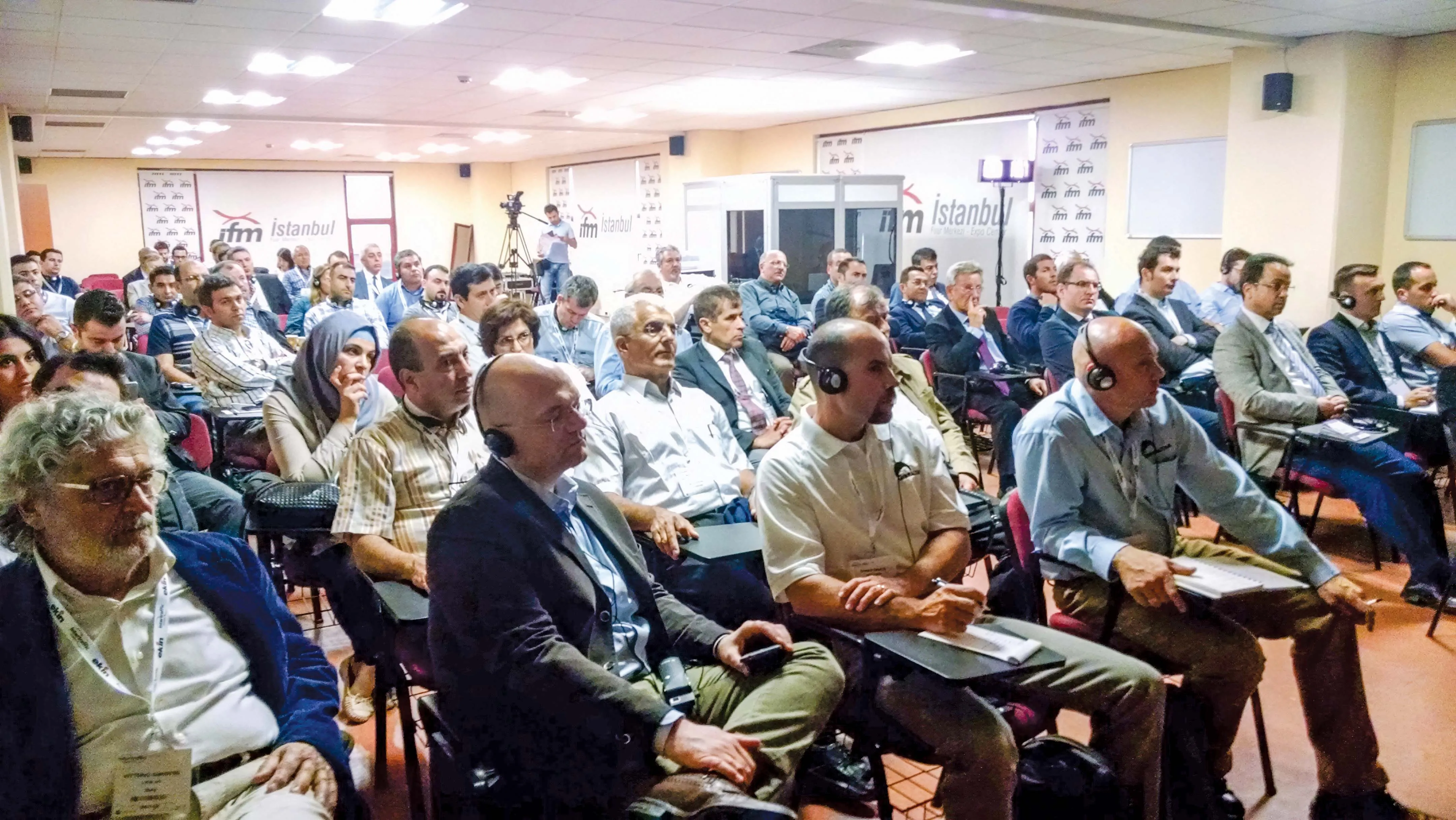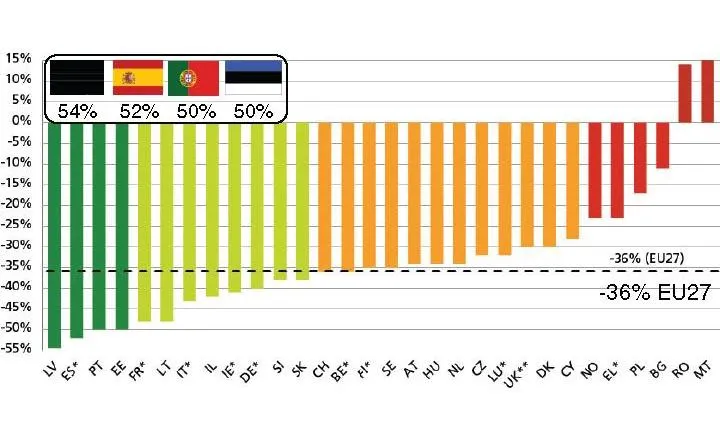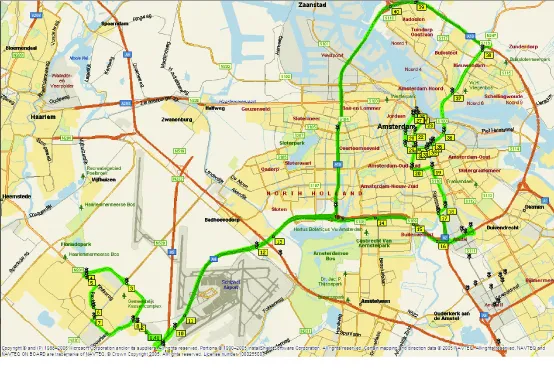Delegates experience IRF training at world’s largest road fair
The International Road Federation has partnered with RAI Intertraffic, the organiser of the world’s largest road fair, to hold complimentary training workshops open to all visitors. A pilot course on roadside hazard identification and management introduced during Intertraffic Istanbul in 2015 received very positive feedback and has now been expanded to four introductory courses on a wider range of topics made available to all Intertraffic Ams
April 1, 2016
Read time: 3 mins

RSSDelegates experience IRF training at world’s largest road fair
The International Road Federation (3918 IRF Washington) has partnered with RAI Intertraffic, the organiser of the world’s largest road fair, to hold complimentary training workshops open to all visitors. A pilot course on roadside hazard identification and management introduced during Intertraffic Istanbul in 2015 received very positive feedback and has now been expanded to four introductory courses on a wider range of topics made available to all Intertraffic Amsterdam participants. The previous edition of Intertraffic Amsterdam gathered 27,000 visitors from 125 countries.
IRF president & CEO C Patrick Sankey said the IRF’s partnership with Intertraffic is “an opportunity to increase the visibility of our diversified offering of courses while providing Intertraffic visitors with the resources they need to correctly identify and select the industry solutions that most closely fit their needs.”
Successfully Deploying Automated Speed Enforcement Programs
April 6th, 10:30-12:00
This workshop introduces comprehensive methodologies to allow states, provinces and/or cities around the world to effectively and economically utilise state-of-the-art speed and red light cameras to improve the safety of their road network, while addressing concerns regarding the use of these devices as revenue generators and not for road safety improvements. This topic is timely and highly relevant for road and traffic enforcement authorities and road safety advocates around the world.
State-of-the-Art of Electronic Toll Collection
April 6th, 14:00-15:30
The principal objective of this workshop is to provide road stakeholders with a detailed understanding of those electronic tolling solutions that are available at the current time, and those that have potential for the near future. Those solutions are placed in the context of their real world deployment across different types of schemes, as well as the applicable charging and enforcement solutions available to network managers.
Minimum Qualifications for Road Safety Auditors
April 7th, 10:30-12:00
This workshop places particular emphasis on the qualifications of the individuals conducting road safety audits. The ultimate goal is to use locally-drawn expertise to conduct these audits wherever possible. This in turn requires road authorities to have a clear definition detailing who can conduct audits and inspections. Conversely, unqualified personnel could miss obvious safety concerns resulting in an unsafe road. Worse yet, the road authority would be using its limited financial resources to conduct these audits with less than acceptable results.
Forgiving Roadsides
April 7th, 14:00-15:30
This course introduces attendees to technologies being used around the world to make poles located close to the road more forgiving. Attendees will learn about the current testing standards for these products used in Europe (EN12767) and in the United States (MASH-Manual to Assess Safety Hardware). The course will also explain how to evaluate these products and to better understand where and when to implement them.
The International Road Federation (
IRF president & CEO C Patrick Sankey said the IRF’s partnership with Intertraffic is “an opportunity to increase the visibility of our diversified offering of courses while providing Intertraffic visitors with the resources they need to correctly identify and select the industry solutions that most closely fit their needs.”
Successfully Deploying Automated Speed Enforcement Programs
April 6th, 10:30-12:00
This workshop introduces comprehensive methodologies to allow states, provinces and/or cities around the world to effectively and economically utilise state-of-the-art speed and red light cameras to improve the safety of their road network, while addressing concerns regarding the use of these devices as revenue generators and not for road safety improvements. This topic is timely and highly relevant for road and traffic enforcement authorities and road safety advocates around the world.
State-of-the-Art of Electronic Toll Collection
April 6th, 14:00-15:30
The principal objective of this workshop is to provide road stakeholders with a detailed understanding of those electronic tolling solutions that are available at the current time, and those that have potential for the near future. Those solutions are placed in the context of their real world deployment across different types of schemes, as well as the applicable charging and enforcement solutions available to network managers.
Minimum Qualifications for Road Safety Auditors
April 7th, 10:30-12:00
This workshop places particular emphasis on the qualifications of the individuals conducting road safety audits. The ultimate goal is to use locally-drawn expertise to conduct these audits wherever possible. This in turn requires road authorities to have a clear definition detailing who can conduct audits and inspections. Conversely, unqualified personnel could miss obvious safety concerns resulting in an unsafe road. Worse yet, the road authority would be using its limited financial resources to conduct these audits with less than acceptable results.
Forgiving Roadsides
April 7th, 14:00-15:30
This course introduces attendees to technologies being used around the world to make poles located close to the road more forgiving. Attendees will learn about the current testing standards for these products used in Europe (EN12767) and in the United States (MASH-Manual to Assess Safety Hardware). The course will also explain how to evaluate these products and to better understand where and when to implement them.








